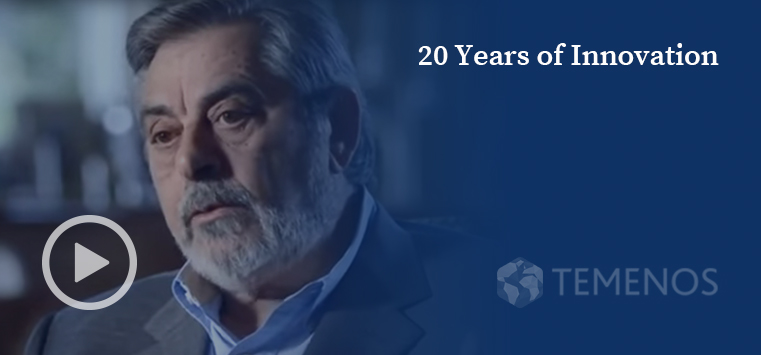
Essential Non-Conformity
George Koukis Speaks Personally on
Non-Conformity as a Prerequisite for Greatness
By way of illustrating this phenomenon, my challenge will be to select from among the many examples that come to mind from my own experience. I believe the right course will be to “begin at the beginning” at Temenos, as this principle was proven repeatedly for me during my time there.
I believe I have mentioned previously the stock market crash in 1987. This for me was a singular example in which I did not rise above conformity to act in a way consistent with who I am, but rather, behaved in the same ways others around me were behaving. The result was that I lost everything—it still serves as the biggest lesson of my life—and one facet of that lesson was that in acting almost as part of a herd, we become incapable of greatness.
But that was a critical lesson for me to have learned at the time that I did. Because in the next chapter of my “story”—about five years later—it would make all the difference. At that time, I had made up my mind that I should buy a small, nearly bankrupt, banking software company. The price was $948,000 and the venture capitalist I approached appointed four advisors—whose counsel I respected—to assess the transaction.
To a person—they were completely unanimous—they advised against the purchase. There were many reasons to justify this conclusion—no doubt including the fact that I knew nothing of banking at that time—and many of these reasons were I’m sure prudent. But more important was my own dream and my own sense that this path forward was indeed the correct one. (I discuss this “sense” in greater detail in the Influence of Intuition section.)
On the 16th of November 1993, I gave over a check and picked up the share certificates. I purchased the company, renamed it Temenos, and the rest—two decades of growth and innovation and excellence—is history.
Second story—also at Temenos—about eight years later, in 2001. The investment bankers charged with listing Temenos on the Zurich Stock Exchange were insistent that I move the company to Silicon Valley, to New York City, or at least to London. They advised me in the strongest terms that the companies around the globe that had proven successful in this transition were finding opportunity and innovation in locations such as these. In their minds, to keep up with the competition, I should follow suit.
Once again, I respected the judgments of people experienced in such matters and also knew that this counsel was well intended. Nonetheless, I felt certain—in an unmistakable sense—that it was these bankers who were mistaken and that I knew better the location that would best serve Temenos.
Ultimately, of course I did not follow the instruction of the investment bankers, and I did not follow my competition to these locations that were perhaps “more fashionable” for companies in our industry. I followed instead what was inside me—in my gut—and chose Geneva. And then, as I like to say, success followed me—and Temenos—for what has now been more than two decades.
Practical Application for Ethical Leadership
Two-fold Considerations for Banishing the Herd Mentality to Escape Mediocrity



